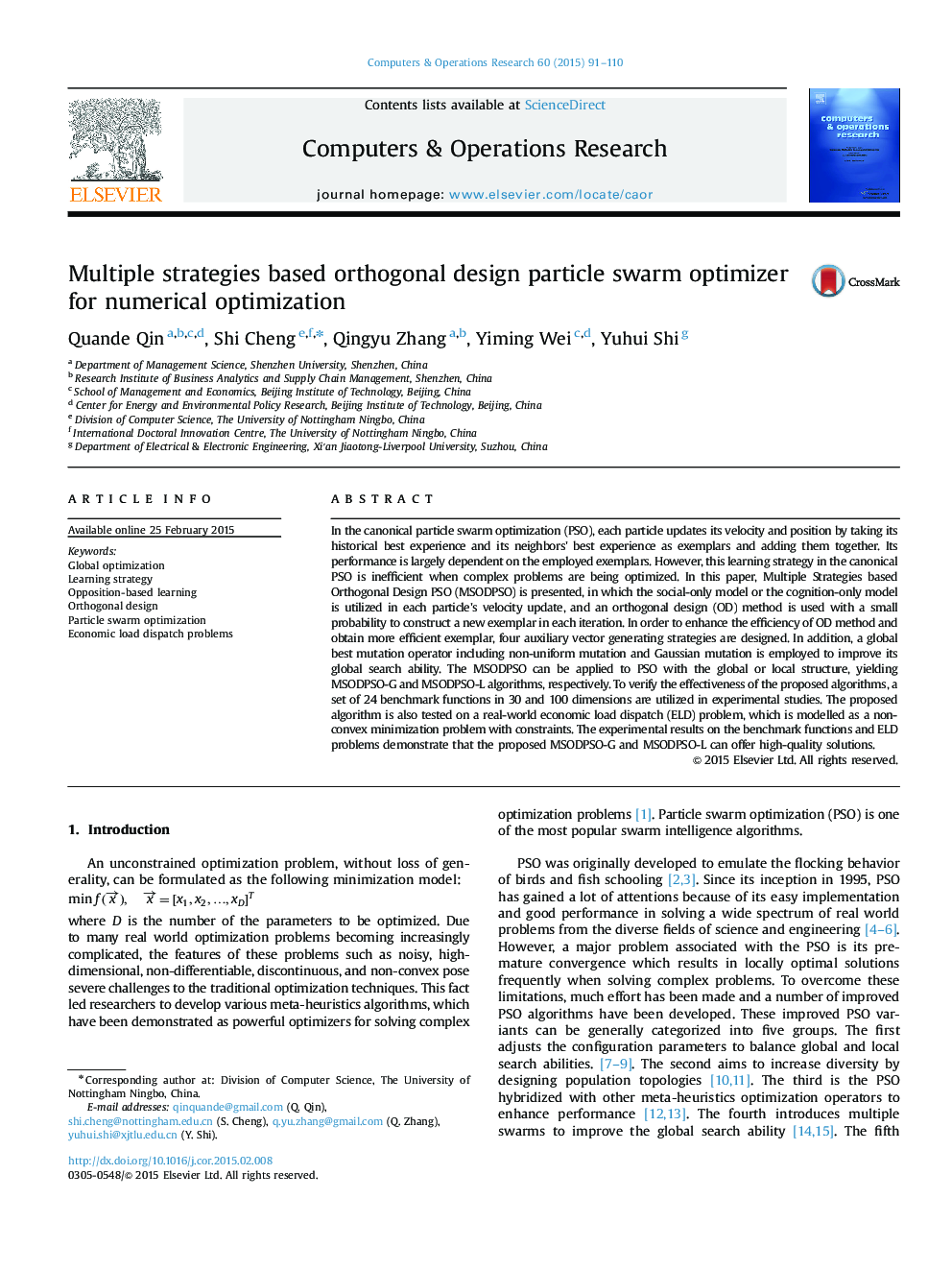| Article ID | Journal | Published Year | Pages | File Type |
|---|---|---|---|---|
| 475695 | Computers & Operations Research | 2015 | 20 Pages |
In the canonical particle swarm optimization (PSO), each particle updates its velocity and position by taking its historical best experience and its neighbors׳ best experience as exemplars and adding them together. Its performance is largely dependent on the employed exemplars. However, this learning strategy in the canonical PSO is inefficient when complex problems are being optimized. In this paper, Multiple Strategies based Orthogonal Design PSO (MSODPSO) is presented, in which the social-only model or the cognition-only model is utilized in each particle׳s velocity update, and an orthogonal design (OD) method is used with a small probability to construct a new exemplar in each iteration. In order to enhance the efficiency of OD method and obtain more efficient exemplar, four auxiliary vector generating strategies are designed. In addition, a global best mutation operator including non-uniform mutation and Gaussian mutation is employed to improve its global search ability. The MSODPSO can be applied to PSO with the global or local structure, yielding MSODPSO-G and MSODPSO-L algorithms, respectively. To verify the effectiveness of the proposed algorithms, a set of 24 benchmark functions in 30 and 100 dimensions are utilized in experimental studies. The proposed algorithm is also tested on a real-world economic load dispatch (ELD) problem, which is modelled as a non-convex minimization problem with constraints. The experimental results on the benchmark functions and ELD problems demonstrate that the proposed MSODPSO-G and MSODPSO-L can offer high-quality solutions.
